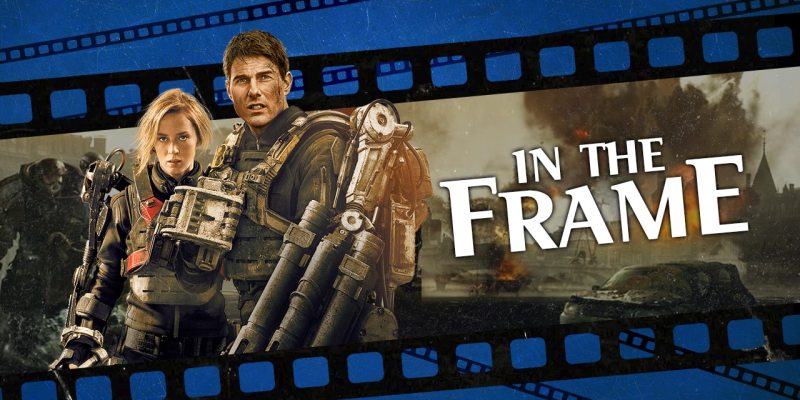With the early release of Sonic the Hedgehog on streaming, it’s worth pausing to acknowledge the greatest video game movie ever: Edge of Tomorrow.
Of course, Edge of Tomorrow is not an adaptation of an existing video game. It is based on Hiroshi Sakurazaka’s light novel, All You Need Is Kill. The title was changed to Edge of Tomorrow because the studio felt that there was a lot of “negative chatter” about the inclusion of the word “kill” in the title. The film would subsequently be rebranded Live Die Repeat for home media.
To be fair, there is not a lot of competition in terms of great video game movies. Everybody knows the cavalcade of failures, from Super Mario Bros. to Warcraft to Assassin’s Creed. Some — like Prince of Persia — manage to hit dull competence, while others — like Mortal Kombat — can make for fun distractions. Pokémon Detective Pikachu was such a delight because it was actually good.
Video games are tough to adapt for film. Most obviously, while properties like Super Mario and Sonic the Hedgehog might have an elaborate mythology, their mass market appeal is their gameplay dynamics rather than their central narratives. This is why adaptations of games are often narrative disasters, as writers try to impose conventional structure on the surface iconography.
Sonic the Hedgehog is a prime example of this. Despite including recognizable characters like Sonic and Robotnik, and even teasing the possibility of Tails showing up in the sequel, it still can’t think of anything to do with the title character other than to drop him in the real world and send the CGI critter on a road trip with James Marsden. Sonic the Hedgehog owes as much to the box office success of Hop as it does to its nominal source material.
Of course, there are countless video games with compelling and engaging narratives, such as the works of Hideo Kojima. However, those stories are fundamentally built around user interaction, the idea of a player controlling or driving the action and shaping the story. Modern video games are already cinematic in terms of production and can even feature genuine movie stars.
Translating these stories into linear cinematic narratives inevitably means losing something of the core experience. At best, a good game adaptation might feel like watching a Let’s Play video, but one controlled by somebody less directly experienced with the medium than any number of streamers or journalists. Direct adaptation of a video game may yet produce a classic, but that seems quite far off.
So, accepting that the best video game movie is unlikely to be a direct adaptation of a video game, it makes sense it might offer an exploration of the experience of playing a video game. It might understand that video games are not a genre unto themselves; they are instead a medium. They aren’t a statement that can be transcribed, but rather a language that needs translation.
This is also a factor with comic book adaptations. A lot of film journalism treats the term “comic book movie” as synonymous with the superhero genre. However, a lot of the truly great superhero movies like The Dark Knight or Guardians of the Galaxy work by translating superhero tropes into cinematic conventions. They are as close to Heat and Star Wars as they are to a printed comic.
However, there are films like Edgar Wright’s Scott Pilgrim vs. the World and Ang Lee’s Hulk that try, with varying degrees of success, to offer a cinematic imitation of actual comic book storytelling. Spider-Man: Into the Spider-Verse looks like a comic book brought to life in a way that few other big-budget productions actually can. There should be more comic book adaptations like that.

There is a lot to like about Edge of Tomorrow on its own terms: The plot is basically Groundhog Day meets Starship Troopers. The supporting cast includes Emily Blunt, Bill Paxton, and Brendan Gleeson with an American accent. The film is built on Tom Cruise’s understanding of how much audiences want to watch him suffer for their amusement. It is a good, fun movie.
However, what makes Edge of Tomorrow such a great video game movie is that it is fundamentally built around the mechanics and internal logic of gaming. It is obviously impossible for cinema to truly replicate the immersive quality of video games, despite gimmicks like 3D and 4DX. Instead, Edge of Tomorrow imitates the internal grammar of the medium.
The basic plot of Edge of Tomorrow focuses on a smarmy public relations officer named William Cage (Cruise), who finds himself thrown into combat with minimal training. On the frontlines of a war with an alien menace that is always several moves ahead, Cage dies pretty quickly. However, he doesn’t stay dead. Instead, he finds himself living the same day over and over again.
The result is a version of Groundhog Day that is a lot more goal-oriented. Cage has a very clear objective throughout Edge of Tomorrow — and one implied by the title; Cage has to survive that frontline assault and make it to the end of the day. This narrative element provides an ordering principle around the film that invites comparisons to video games.

Director Doug Liman acknowledged the similarities between Cage’s experience and playing video games. “You have a character that’s immortal in the way that video game characters are,” he explained, “but you also get that same frustration of getting almost to the end and then, ‘Oh no, I was sent back to the beginning.'” Sakurazaka acknowledges the influence of games on his writing.
Cage effectively save scums his way through the day. At various points, he adopts different approaches. Early on, he treats it like an open world, soon discovering that the narrative is designed to force him in particular directions. He comes to rely on skills of pattern recognition and system thinking that gamers take for granted, spotting rhythms in the structure of the day.
The result is a celebration of the experience of playing a video game, covering everything from the frustration with that one unclearable level to that curiosity about the hidden secrets buried within the code that might be explored on subsequent playthroughs. Edge of Tomorrow is the rare movie that understands and replicates the emotional response to playing an immersive video game.
Watching films like Sonic the Hedgehog or Tomb Raider, you might be forgiven for wondering if anybody involved in those movies has any affection for the experience of actually playing a video game. Edge of Tomorrow might not be directly based on an established video game property, but it serves as a love letter to the entire medium.
